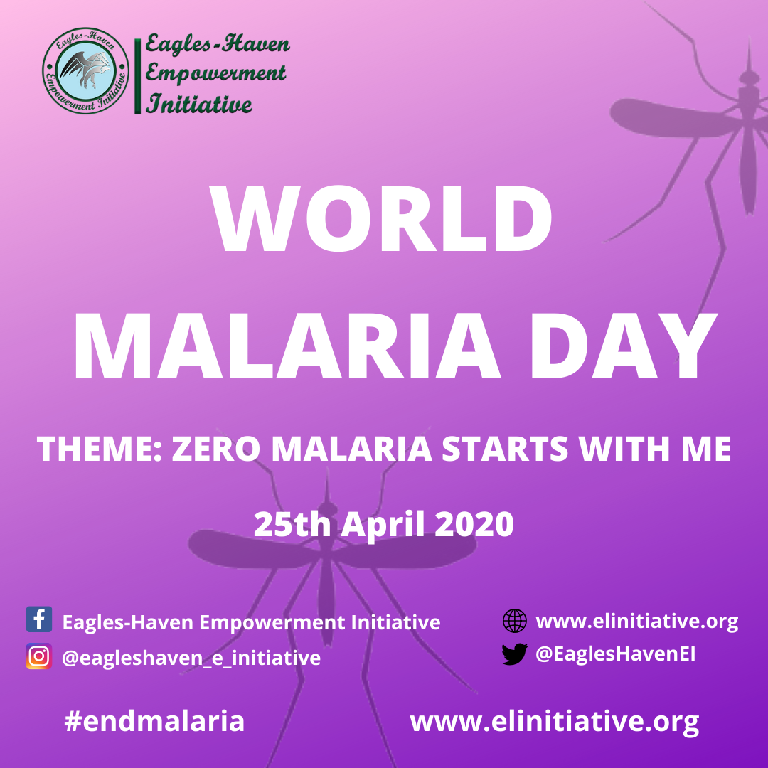World Malaria Day
Theme: Zero Malaria Begins With Me
Malaria is an acute febrile (fever-causing) illness. The first symptoms include – fever, headache, joint pains and chills – may be mild and difficult to recognize as malaria. If not treated within 24 hours, P.falciparum malaria can progress to severe illness, often leading to death. It is caused by parasites that are transmitted to people through the bites of infected female Anopheles mosquitoes. It is preventable and curable.
In 2018, there were an estimated 228 million cases of malaria worldwide.
The estimated number of malaria deaths stood at 405 000 in 2018.
Children aged under 5 years are the most vulnerable group affected by malaria; in 2018, they accounted for 67% (272 000) of all malaria deaths worldwide.
The WHO African Region carries a disproportionately high share of the global malaria burden. In 2018, the region was home to 93% of malaria cases and 94% of malaria deaths.
Total funding for malaria control and elimination reached an estimated US$ 2.7 billion in 2018. Contributions from governments of endemic countries amounted to US$ 900 million, representing 30% of total funding.
Most malaria cases and deaths occur in sub-Saharan Africa. However, the WHO regions of South-East Asia, Eastern Mediterranean, Western Pacific, and the Americas are also at risk.
Some population groups are at considerably higher risk of contracting malaria, and developing severe disease, than others. These include infants, children under 5 years of age, pregnant women and people living with HIV/AIDS, as well as non-immune migrants, mobile populations and travellers.
Malaria & COVID-19:
In the lead-up to this year’s World Malaria Day, countries across the globe are in the throes of responding to the COVID-19 pandemic. As this spreads rapidly around the globe, there is an urgent need to aggressively tackle the novel coronavirus while ensuring that other killer diseases, such as malaria, are not neglected.
While cases of the novel coronavirus in malaria-affected countries currently represent only a small proportion of the global total, the situation is evolving rapidly. WHO underlines the critical importance of sustaining efforts to prevent, detect and treat malaria, using best practices to protect health workers and communities from COVID-19 infection.


.png)
.jpg)
.jpg)
.png)
.png)
.png)
.png)
.png)